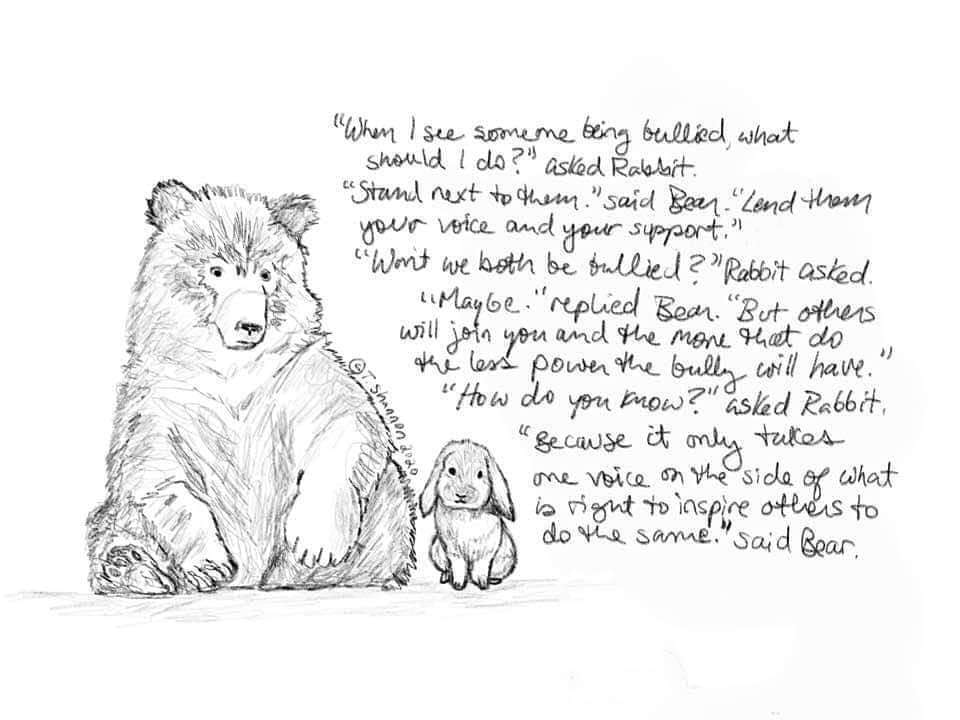Good morning, Prep School family,
I hope you are all well and relaxed after a super half term. I have heard so many stories today from the children of the wonderful and exciting things that you have all been up to over the last week from holidays to art galleries to museums to mountains. Your adventures sounded amazing and I hope you all enjoyed each and every minute.
I have sat contemplating what to write about this week. My thoughts keep getting drawn to the ever worsening situation in Ukraine. My mind is distracted by the horrific stories that we are hearing and heart-breaking images that we are seeing. I am overwhelmed by the stories of bravery and heroism from both the Ukraine and Russian people who are sacrificing everything that they have to defend their beliefs and stand up for what is right. I am saddened beyond belief that, in this day and age, people are having to shelter below ground from constant shell attacks and that normal, everyday people are having to resort to making their own ammunition or using government machine guns to defend themselves, their properties but most importantly, their loved ones. I felt physically sick when I read the story of the children’s hospital being bombed and when I watched families saying goodbye at the boarders, not knowing if they would see each other again. I feel completely helpless. I feel guilty for not having to worry about where I am sleeping tonight, for knowing that I won’t be torn from my bed by the sound of air raid sirens and that I get to hold my loved ones even closer tonight. I feel guilty that I have food in the fridge, that I am warm in my house and that I have clothes to wear – things we take for granted but that have, over the past few days suddenly taken on a new and far more profound meaning in our lives. I am sure that many of you are feeling this way too.
In school and at home, our children are and will be asking questions and I know how hard it is to talk to them about Ukraine and war. I know how worried and frightened that they will be and how hard it is for them to try and understand a situation we, as adults, find completely incomprehensible. As you no doubt have, I have read many articles and listened to many news broadcasts over the past few days, all equally as devastating but one really struck a chord with me. It was about how if, we are finding the situation at the moment overwhelming (and it is ok to feel like this), to focus on the helpers. Focus our minds on those who are doing so much good helping other people; the politicians and the diplomats from all over the world who are trying to find a peaceful solution. The aid workers and charities who are in these cities helping people who are injured, hungry or scared. The news reporters who are ensuring that the facts are reported fairly. The people who are looking after each other and ensuring that their communities are safe and that they are supporting each other in the scariest of times. All of this good is easy to forget but it is so important that we remember these acts of kindness, for it is these selfless acts that show us and remind us what humanity is all about.
Practically, I found the following information on the Save The Children website and I thought it may be useful to you in the coming days or weeks. . .
How and When to Talk About War and Conflict with Children – Save The Children
- Make time and listen when your child wants to talk
Give children the space to tell you what they know, how they feel, and to ask you questions. They may have formed a completely different picture of the situation than you have. Take the time to listen to what they think, and what they have seen or heard.
- Tailor the conversation to the child
Be mindful of the child’s age as you approach the conversation with them. Young children may not understand what conflict or war means and require an age-appropriate explanation. Be careful not to over-explain the situation or go into too much detail as this can make children unnecessarily anxious. Younger children may be satisfied just by understanding that sometimes countries fight. Older children are more likely to understand what war means but may still benefit from talking with you about the situation. In fact, older children will often be more concerned by talk of war because they tend to understand the dangers better than younger children do.
- Validate their feelings
It is important that children feel supported in the conversation. They should not feel judged or have their concerns dismissed. When children have the chance to have an open and honest conversation about things upsetting them, it can create a sense of relief and safety.
- Reassure them that adults all over the world are working hard to resolve this
Remind children that this is not their problem to solve. They should not feel guilty about playing, seeing their friends, and doing the things that make them happy. Stay calm when you approach the conversation. Children often copy the sentiments of their caregivers—if you are uneasy about the situation, chances are your child will be uneasy as well.
- Give them a practical way to help
Support children who want to help. Children who have the opportunity to help those affected by the conflict can feel like they are part of the solution. Children can create fundraisers, send letters to local decision-makers, or create drawings calling for peace.
I also saw this story on social media and I thought it was more relevant today than ever before. It’s something that we can all understand, whatever our age.
“When I see someone being bullied, what should I do?” asked Rabbit.
“Stand next to them,” Said Bear. “Lend them your voice and your support.”
“Won’t we both be bullied?” asked Rabbit.
“Maybe,” replied Bear. “But others will join you and the more that do, the less power the bully will have.”
“How do you know?” asked Rabbit.
“Because it only takes one voice on the side of what is right to inspire others to do the same,” said Bear.
Always be someone else’s inspiration.
Quote of the week: “If today gets difficult, remember the smell of coffee, the way the sunlight bounces of a window, the sound of your favourite person’s laugh, the feeling when a song comes on that you love, the colour of the sky at dusk and that we are here to take care of each other.” – Nanea Hoffman
Well-being tasks for this week: These tasks for are for a Mindful March. Let’s pause, breathe and notice, so we can respond more mindfully.
Tuesday 1 March – Set an intention to live with awareness and kindness
Wednesday 2 March – Notice three things you find beautiful in the outside world
Thursday 3 March – Start today by appreciating your body and that you’re alive
Friday 4 March – Notice how you speak to yourself and choose to use kind words
Saturday 5 March – Bring to mind people you care about and send love to them
Sunday 6 March – Have a “no plans” day and notice how that feels
Monday 7 March– Take three calm breaths at regular intervals during your day
Jokes of the week:
I’m reading a book about gravity, I just can’t put it down!
I just read a book about mazes, I got totally lost in it!
I’m reading a book about black holes; it really draws you in!
I borrowed a book written by a ghost writer, but to be honest, it really was not that scary!
This mountaineering book was gripping, it ended in such a cliff hanger!
Sleeps til Santa: 298 days
5 things that I am grateful for or looking forward to this week:
Can you try this simple exercise in gratitude and positivity?
- I am looking forward to our annual Prep School Book Week
- I am looking forward to going to Norfolk at the weekend
- I am looking forward to trying a new restaurant in Nottingham on Saturday night
- I am grateful for friendship
- I am grateful for cosy evenings
Have a lovely week, hopefully the sun will come out to play.
Take care and much love this week,
Mrs Bennett




